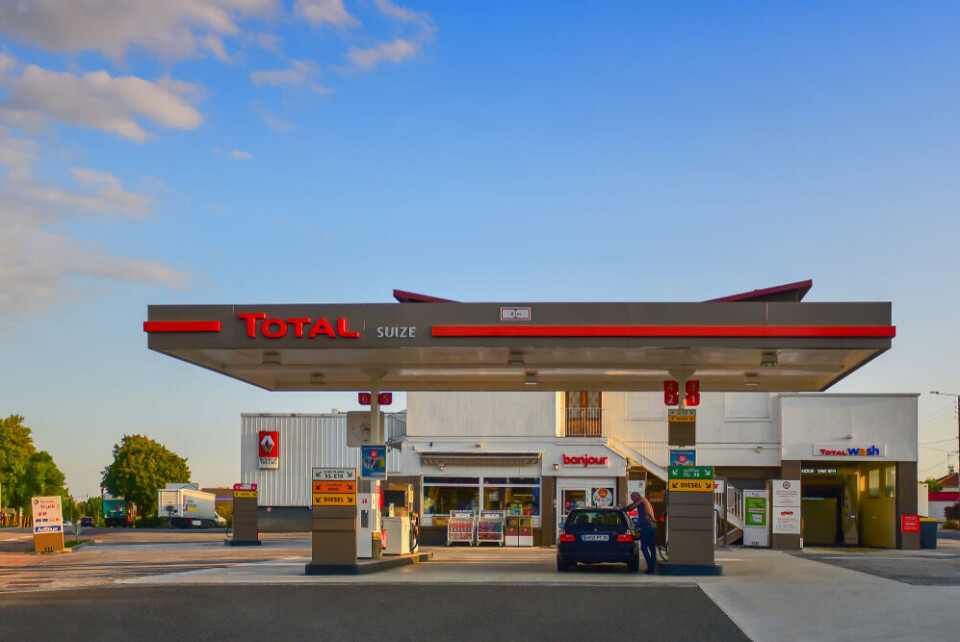-
MPs pass end-of-life bill in France – what does it contain?
The aim is to create new legislation on the right to die
-
Saharan sand deposits to fall across France next week
First episode of year will affect southern and western France - and as far north as Brittany
-
French weekend weather forecast February 28 - March 1: Showers but calm
Temperatures will drop but remain above average for the season
Fuel limits imposed in several areas of France: How long will it last?
Local authorities take action after around one in five petrol stations reported supply difficulties. Where is the worst hit and is it expected to continue next week?

Petrol stations around France are facing fuel shortages due to a strike at three Esso and Total refineries over wage demands.
The shortages are especially impacting stations in the north, such as in the Nord, Pas-de-Calais and Somme departments.
Countrywide, around one in five petrol stations in France were experiencing supply difficulties on Friday (October 7), the minister for Ecological Transition, Agnès Pannier-Runacher, said.
Some companies, such as Système U, the group behind Hyper U, Super U, U Express (previously Marché U) et Utile shops, claim that this figure is an underestimation.
The ministry states that 42% of petrol stations in Pas de Calais and 43% in Nord were facing shortages of at least one type of fuel on Friday.
In total, in the Hauts-de-France, 30% of the region’s petrol stations are facing supply issues.
This has been exacerbated by people stocking up further.
It is thought that the northern departments are impacted more due to their proximity to other European countries, with drivers from there preferring to buy fuel in France as it is cheaper. The French government offers a 30-cents-per-litre discount on fuel and many companies offer extra discounts on top of that, including TotalEnergies, which adds an extra 20-cents-per-litre reduction.
The shortages are expected to last until at least the middle of next week.
Departments take action to limit impact of fuel shortages
Local authorities in several departments have introduced new rules to tackle the problem.
In Pas-de-Calais, Nord and Somme it has, since Wednesday, been forbidden for drivers to fill up jerry cans with petrol.
The Vaucluse prefecture is limiting the sale and purchase of fuel to a maximum of 30 litres for non-professional drivers and 120 litres for professional drivers of vehicles over 3.5 tonnes, reports France Bleu Vaucluse. Additionally, the sale and purchase of fuel in jerry cans is prohibited until October 11.
In the Aisne, emergency and rescue services, medical and paramedical personnel and people in positions of public authority have access to priority lanes at certain petrol stations between 07.30 and 18:00.
The prefecture has also banned "the sale, purchase, distribution and transport of fuel in any manually transportable container" until October 13
The prefectures of the Vosges and Val-d'Oise issued orders on Friday to ban the sale and purchase of fuel in cans and jerry cans until October 12.
Government measures and strike dispute
The government has opened up strategic stocks of fuel to supplement stations’ supplies. They have also permitted tankers to operate this weekend to supply stations – in general in France it is forbidden to drive heavy goods vehicles weighing over 7.5tonnes on weekends.
As for the strike, negotiations between staff and management over salaries are ongoing.
At Total Energies, the strikers are demanding their wages are reviewed before the annual salary negotiation period, which is due on November 15. The management is reportedly unwilling to talk. The situation at two Esso refineries is also reportedly at a roadblock.
French Prime Minister Élisabeth Borne has called on everyone to act responsibly and said that she is making sure that people will have a guarantee of fuel around the country.
Related articles
‘No need for panic’ over petrol station shortages says French official
Petrol and diesel prices rising again in France after sustained fall
French workers explain why they joined today’s general strike
























